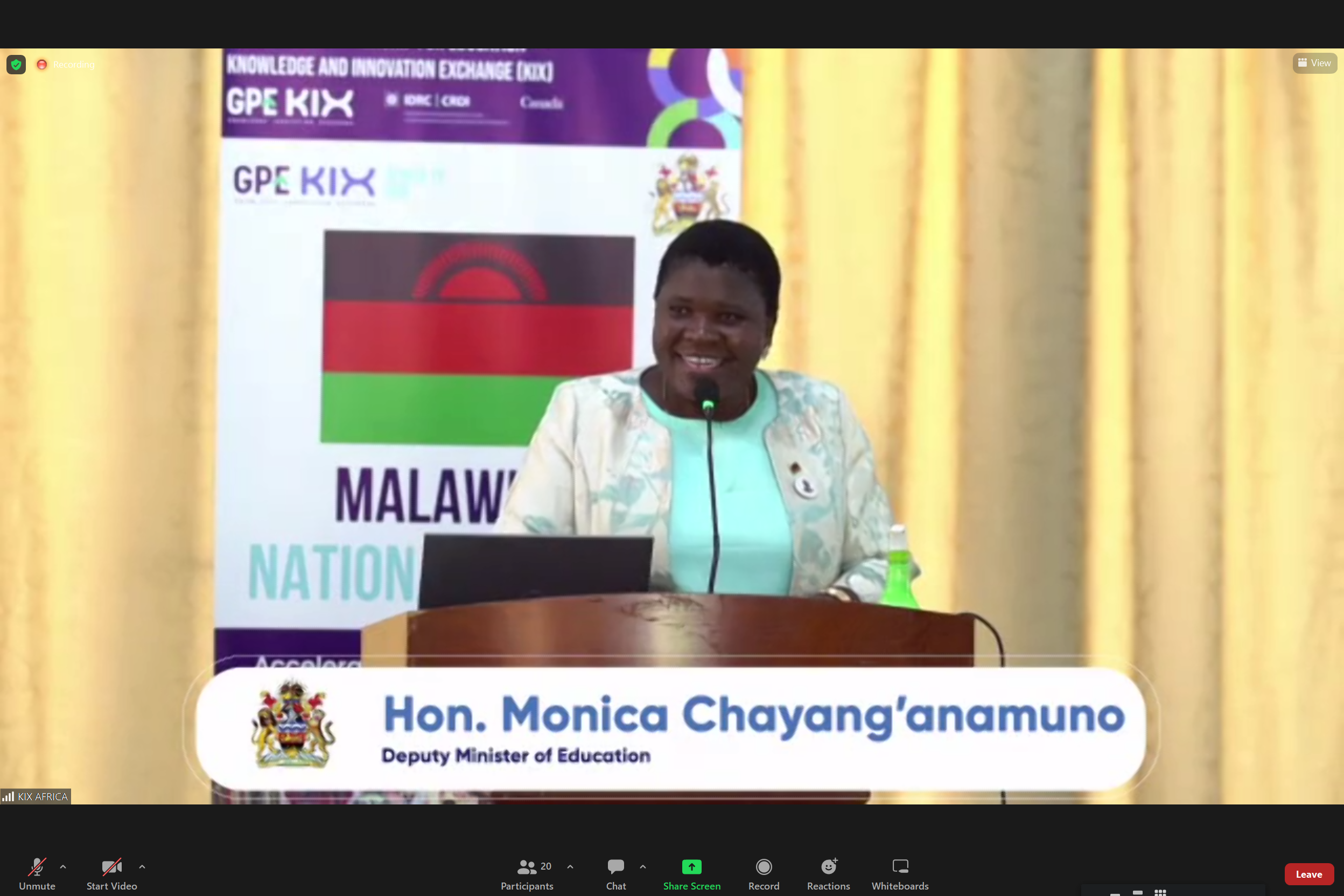
More than sixty stakeholders involved in education in Malawi brainstormed how to make education more equitable and accessible to children at a KIX National Dialogue on Thursday May 19 in Lilongwe, Malawi. Organised by the Malawi Ministry of Education (MoE), the Malawi National Commission for UNESCO and the KIX Africa 19 hub, the dialogue focused on the role of evidence-based policymaking and action towards accelerating access to equitable and quality education in Malawi following previous dialogues in Kenya in September 2021 and Ethiopia in January 2022.
The Director of UNESCO International Institute for Capacity Building in Africa (IICBA), Yumiko Yokozeki, welcomed attendees stating, “It is an honour to witness this gathering of thought leaders and policymakers” and that the hub was “grateful to the active participation of Malawi during KIX events.” Hon. Monica Chang'anamuno, Deputy Minister of Education, remarked, “If Malawi is going to achieve better strides [in education] it is because of those of us sitting here” and invited more teachers and students to participate in future KIX events.
Throughout the day, participants heard from a broad group of stakeholders representing the MoE, local education groups, teachers, the International Development Research Centre (IDRC), UNESCO, the African Union’s education program, the Southern African Development Community as well as the local education development group.
Joy Nafungo of IDRC and Yvonne Mboya, a research consultant with the KIX Africa 19 hub, provided a comprehensive overview of the background, objectives and purpose of KIX’s engagements and activities. Presentations and panel discussions addressed how the hub’s platform for knowledge and innovation exchange could accelerate progress in Malawi’s national education system.
Speakers such as Dr. Limbikani Kamlongera, Executive Director of the Girls Education Trust, presented on achieving gender equality in and through education while Jane Chikapa, a teacher who has been internationally recognized for her teaching service, shared several recommendations on teaching and learning such as encouraging the MoE to “support the innovative teachers” by awarding “teachers doing exceptional work at a national level.”
Lukman Jaji, an education policy officer representing the African Union, a consortium partner managing the KIX hub, highlighted the role of the African Union in working towards both national and continental educational management information systems (EMIS) policy frameworks and further emphasised the work of data sharing in addition to data collection.
James Nakufo, Deputy Director at the MoE for EMIS, presented on meeting the data challenge in education acknowledging “with various education subsectors falling under different line ministries, the sector lacks an integrated education information system which makes efficient availability of data to users difficult.” He further added, “The vision of the MoE is, therefore, to have one comprehensive EMIS system with all the sub systems/platforms integrated into one EMIS for better education data management.”
Other speakers included Jenipher Mbukwa, head of the Special Needs Education Department at Catholic University of Malawi, who presented on leaving no one behind, Dr. Foster Kholowa of UNICEF who presented on strengthening early childhood care and education, and Prof. Dorothy Nampota, ex-secretary of the Malawi National Examinations Board who presented on strengthening learning assessment systems for education.
David Mulera, acting Executive Secretary for the Malawi National Commission for UNESCO, acknowledged the robust in-person and virtual attendance signifying a strong interest in utilising the KIX platform to explore how to bridge the gap between policy and practice. Dr. Valentino Zimpita, KIX focal point in Malawi added that KIX is the right forum for countries "to go far together" in educational policymaking.
See local media coverage of the event from Zodiak Broadcasting Station and, for more information on the KIX Africa 19 hub, please visit our website housed on UNESCO IICBA’s website, and visit our digital repository to access more than two hundred national and regional policies, research, and resources on teaching and learning, assessment, early childhood education, gender equity and inclusion, and the data challenge in education.
